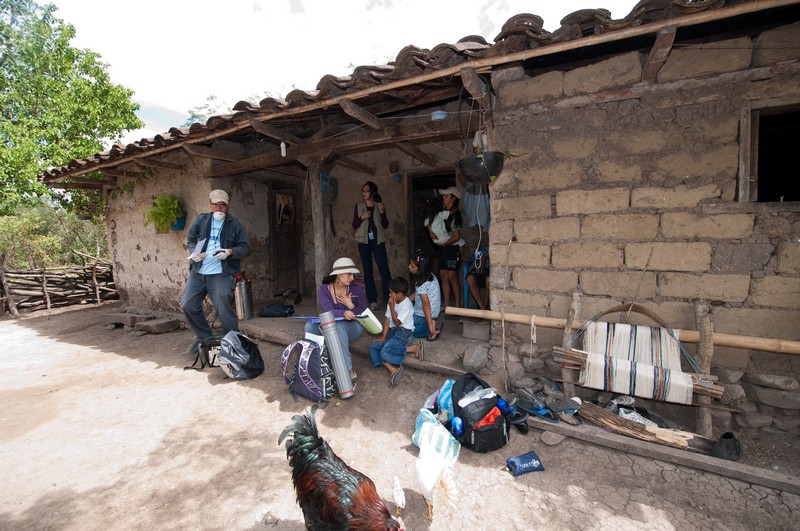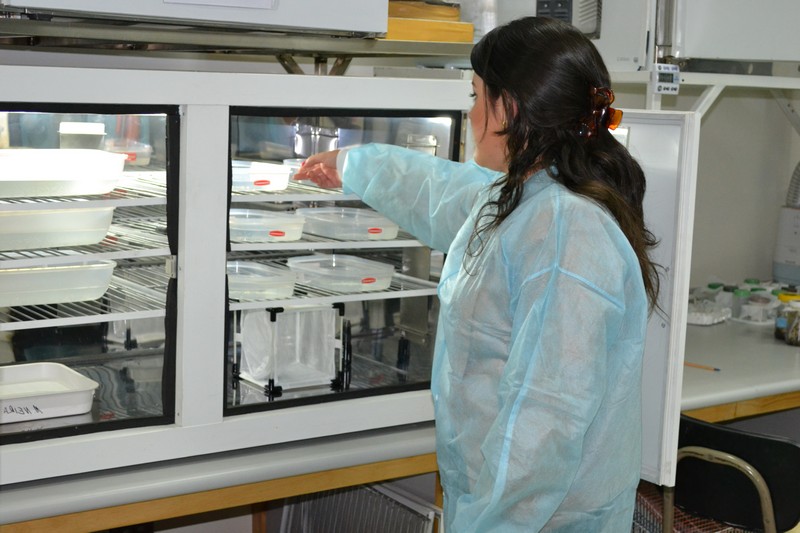
Research conducted at CISeAL aims at advancing the health and standards of living of people at risk of contracting chronic and infectious diseases, such as Chagas Disease, dengue, and malaria.
Our efforts to understand and fight infectious and chronicles diseases give better results through the joint work between our researchers and international partners. Our social and scientific commitment goes further the laboratory, which is why we look up to a holistic comprehension of the context in which these diseases thrive.
If you would like to know more about our job and how our research has a positive impact in society, visit: Healthy Living Iniciative
Chagas Disease
Chagas is a parasitic, systemic, and chronic vector-transmitted disease, caused by protozoan Trypanosoma cruzi. It is closely related to cultural, economic, and social factors, and it is considered a neglected disease. Chagas is an endemic disease in 21 American countries, although the migration of infected people can spread it to non-endemic countries in America and the rest of the world.
The disease is transmitted through vectors, particularly Hemiptera (kissing bugs) from subfamily Triatominae (hematophagous). They infect people by biting them and depositing their infected feces on skin wounds or mucosa. The disease can also be transmitted via transfusion or organ transplant, congenitally, and orally. It is believed that around 100 million people in the region are at risk of contracting Chagas disease and around 8 million people are infected. Furthermore, 56,000 new cases are reported every year resulting from all transmission methods, which cause 12,000 deaths every year.
Dengue

According to the World Health Organization, dengue fever is considered the most important vector-transmitted human viral disease, with an incidence rate of over 50 million new cases every year. The causal agent of the disease is dengue virus, which is transmitted to human beings after they are bitten by mosquitoes of the Aedes genus. The main vector is the mosquito Aedes aegypti, an African species most commonly known as “yellow fever mosquito,” as it is also the most prominent vector of that disease.
Thus far there is no specific vaccine or treatment against dengue fever, the major prevention and control mechanism is vector monitoring. Considering the great genetic plasticity that is characteristic of insect populations in general (and mosquitoes, particularly), control efforts benefit greatly from information that enables the identification of local populations of mosquito vectors. But available research reports about Ecuadorian Aedes aegypti populations are extremely limited, which is why it is essential to fill the knowledge gap as regards one of the main infectious disease vectors in Ecuador.


For this purpose, CISeAL has developed the infrastructure and protocols necessary to maintain Aedes aegypti colonies in our insectary that allows us to obtain the biologic material we need to conduct a detailed examination of this species. Currently, and in collaboration with foreign and national researchers, we work on projects focused on monitoring pesticide resistance in Ecuadorian populations of Aedes aegypti and assessing new control mechanisms, as well as research on this species molecular biology and physiology.
Malaria

Malaria is a disease caused by a parasite of the Plasmodium genus, and it is transmitted through the female Anopheles mosquito. The main species that cause malaria in human beings are P. falciparum and P. vivax. Malaria is one of the major causes of mortality and morbidity in tropical and sub-tropical areas of the world, especially in Africa, where over 500,000 people die every year.
In Ecuador, the incidence rate of malaria has decreased significantly over the past years (over 99% decrease since 2001). Nowadays, the country is in the pre-elimination phase. However, outbreaks still occur on both sides of the Andes. Therefore, the development of research that contributes to malaria eradication policies is vital.



